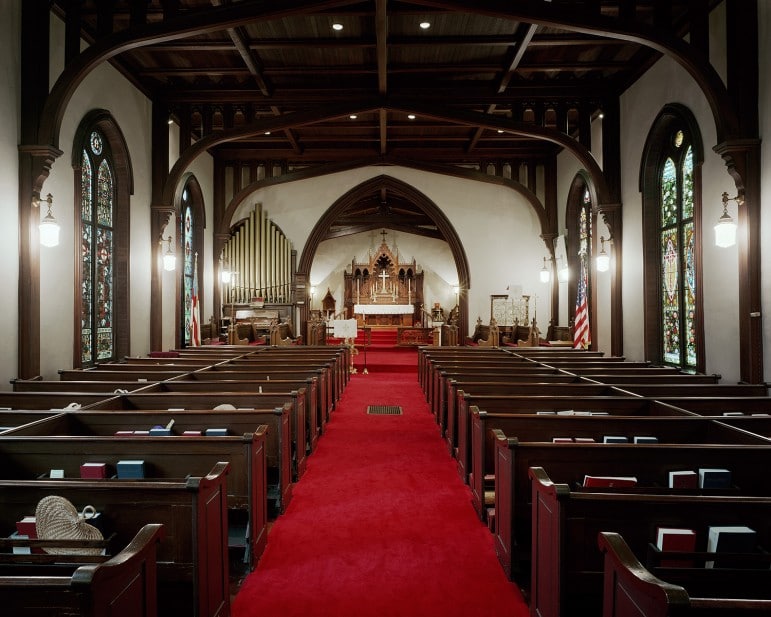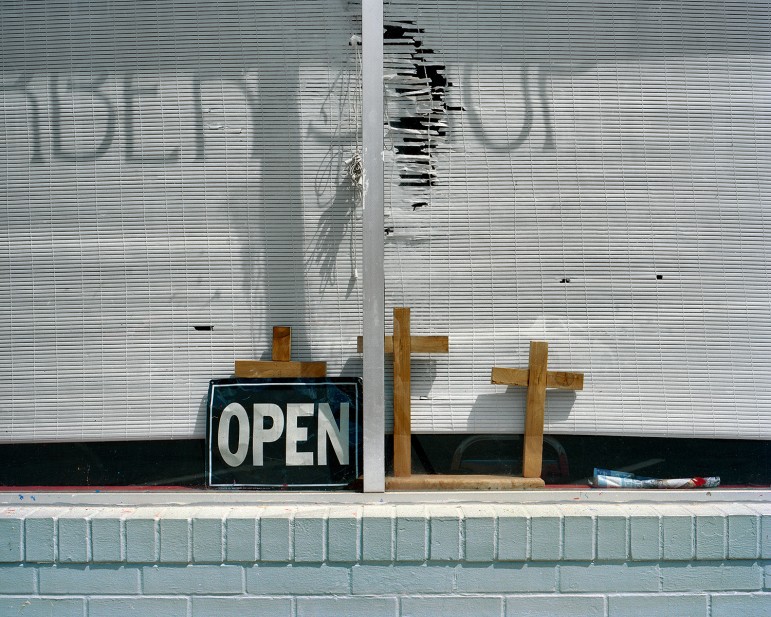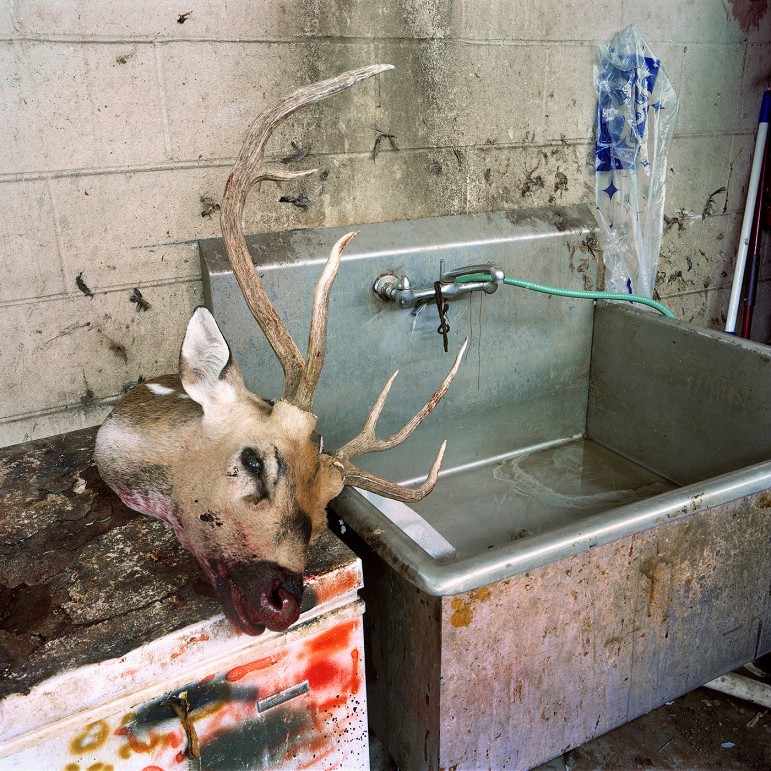“What’s Lost is Found” — Photographs of Hale County
For decades, photographers have captured Hale County in Alabama’s Black Belt. Photojournalist Walker Evans documented families there suffering from the Great Depression. Starting in the 1960s, Alabama-native William Christenberry took pictures of decaying buildings. Now photographer Lauren Henkin can add her work to the tradition.
Last year, Henkin spent a month in Hale County as an artist-in-residence sponsored by the Do Good Fund, which supports photography of the South. Some of those pictures will be displayed in an exhibit called “What’s Lost is Found.” It opens Friday at the Birmingham Museum of Art where she’ll also give a talk about the work.
Henkin spoke with WBHM’s Andrew Yeager.
Excerpts from the interview:
“What I was trying to avoid were some of the more stereotypical images of social and economic divide that you see a lot coming from the rural South and really just trying to explore what I found and to leave some ambiguity in the photographs so that the viewers could impart their own narrative.”
“I spent a lot of time in church, which is very unusual for me. I wouldn’t describe myself as a religious person. But what I started to see and I think this happens over a period of time…you start to see either certain colors or certain things or certain objects and then you become sort of drawn to those particular things.”
“I started noticing this element of spirituality almost everywhere from these wooden crosses that are in a barber shop window, to the light hitting a freshly dug grave, to the people.”
“I was in one church service and the pastor kept saying, ‘The life of the flesh is in the blood. The life of the flesh is in the blood. The life of the flesh is in the blood.’ These are, honestly, phrases that I have never even heard before. And the more he said it, the more I started to think about these sort of bloodied roads, the animals that I saw. There’s one photograph of a deer head that literally had just been removed from the body. There’s this balance there between life and death that I haven’t felt anywhere else that I’ve photographed. That was amazing to me.”
“My camera is basically the same kind of camera that [Western photographer] Ansel Adams used except half the size. It’s a four by five, large format field camera. And it’s my favorite camera to use because I make the best pictures with it.”
“You see the image upside down, which for me actually helps because it completely abstracts the image. I can focus more on form than, like, this tree and how am I going to photograph this tree. I start to notice things around the tree and what’s happening in the foreground and behind it. It’s an interesting process. And it’s fantastic for starting conversations on the street.”
For many U.S. Olympic athletes, Italy feels like home turf
Many spent their careers training on the mountains they'll be competing on at the Winter Games. Lindsey Vonn wanted to stage a comeback on these slopes and Jessie Diggins won her first World Cup there.
Immigrant whose skull was broken in 8 places during ICE arrest says beating was unprovoked
Alberto Castañeda Mondragón was hospitalized with eight skull fractures and five life-threatening brain hemorrhages. Officers claimed he ran into a wall, but medical staff doubted that account.
Pentagon says it’s cutting ties with ‘woke’ Harvard, ending military training
Amid an ongoing standoff between Harvard and the White House, the Defense Department said it plans to cut ties with the Ivy League — ending military training, fellowships and certificate programs.
‘Washington Post’ CEO resigns after going AWOL during massive job cuts
Washington Post chief executive and publisher Will Lewis has resigned just days after the newspaper announced massive layoffs.
In this Icelandic drama, a couple quietly drifts apart
Icelandic director Hlynur Pálmason weaves scenes of quiet domestic life against the backdrop of an arresting landscape in his newest film.
After the Fall: How Olympic figure skaters soar after stumbling on the ice
Olympic figure skating is often seems to take athletes to the very edge of perfection, but even the greatest stumble and fall. How do they pull themselves together again on the biggest world stage? Toughness, poise and practice.









